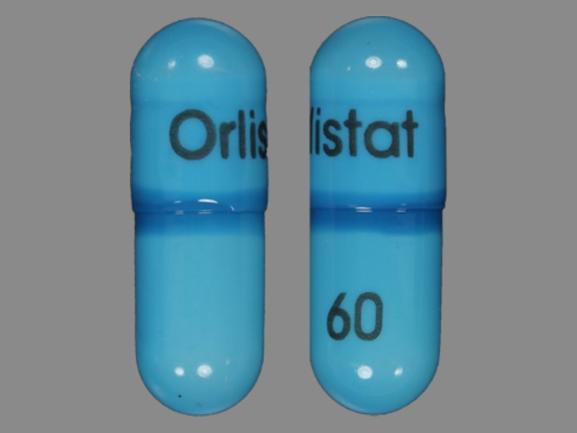Alli Disease Interactions
There are 4 disease interactions with Alli (orlistat).
Orlistat (applies to Alli) malabsorption
Major Potential Hazard, High plausibility. Applicable conditions: Malabsorption Syndrome, Biliary Obstruction
The use of orlistat is contraindicated in patients with chronic malabsorption syndrome or cholestasis. Orlistat can worsen the malabsorption in these conditions by reversibly inhibiting lipases that are necessary for the hydrolysis of triglycerides into absorbable free fatty acids and monoglycerides. At the recommended therapeutic dosage of 120 mg three times a day, orlistat inhibits dietary fat absorption by approximately 30%.
Obesity drugs (applies to Alli) diabetics
Moderate Potential Hazard, Moderate plausibility. Applicable conditions: Diabetes Type 2
Obese, type 2 diabetic patients who achieve weight loss may demonstrate improved metabolic control of their disease as a result of their reduced weight. Therefore, patients with type 2 diabetes mellitus should be monitored during weight-reduction therapy (or therapy that may be expected to induce significant weight loss as a secondary effect) for hypoglycemia and reduced need for oral hypoglycemic medication or insulin, and the dosages of these agents adjusted accordingly. Patients should be apprised of the risk of hypoglycemia and be alert to potential signs and symptoms such as headache, dizziness, drowsiness, nervousness, confusion, tremor, hunger, weakness, perspiration, and palpitation.
Orlistat (applies to Alli) (fat soluble) vitamin deficiency
Moderate Potential Hazard, High plausibility. Applicable conditions: Vitamin A Deficiency, Vitamin D Deficiency, Vitamin K Deficiency
At the recommended therapeutic dosage of 120 mg three times a day, orlistat inhibits dietary fat absorption by approximately 30% and has been shown to reduce the absorption of some fat-soluble vitamins and beta-carotene. Therapy with orlistat should be administered cautiously in patients with preexisting deficiency of one or more fat-soluble vitamins (A, D, E and K). Ideally, the deficiency should be corrected prior to initiation of therapy. A multivitamin supplement containing fat-soluble vitamins is recommended during therapy, best taken once a day at least 2 hours before or after the administration of orlistat.
Orlistat (applies to Alli) nephrolithiasis
Moderate Potential Hazard, Moderate plausibility.
Following treatment with orlistat, some patients may develop increased levels of urinary oxalate as a result of fat malabsorption. Therapy with orlistat should be administered cautiously in patients with a history of hyperoxaluria or calcium oxalate nephrolithiasis.
Switch to professional interaction data
Alli drug interactions
There are 145 drug interactions with Alli (orlistat).
Alli alcohol/food interactions
There is 1 alcohol/food interaction with Alli (orlistat).
More about Alli (orlistat)
- Alli consumer information
- Check interactions
- Compare alternatives
- Pricing & coupons
- Reviews (122)
- Drug images
- Side effects
- Dosage information
- During pregnancy
- Support group
- FDA approval history
- Drug class: peripherally acting antiobesity agents
- Breastfeeding
- En español
Related treatment guides
Drug Interaction Classification
| Highly clinically significant. Avoid combinations; the risk of the interaction outweighs the benefit. | |
| Moderately clinically significant. Usually avoid combinations; use it only under special circumstances. | |
| Minimally clinically significant. Minimize risk; assess risk and consider an alternative drug, take steps to circumvent the interaction risk and/or institute a monitoring plan. | |
| No interaction information available. |
See also:
Further information
Always consult your healthcare provider to ensure the information displayed on this page applies to your personal circumstances.


